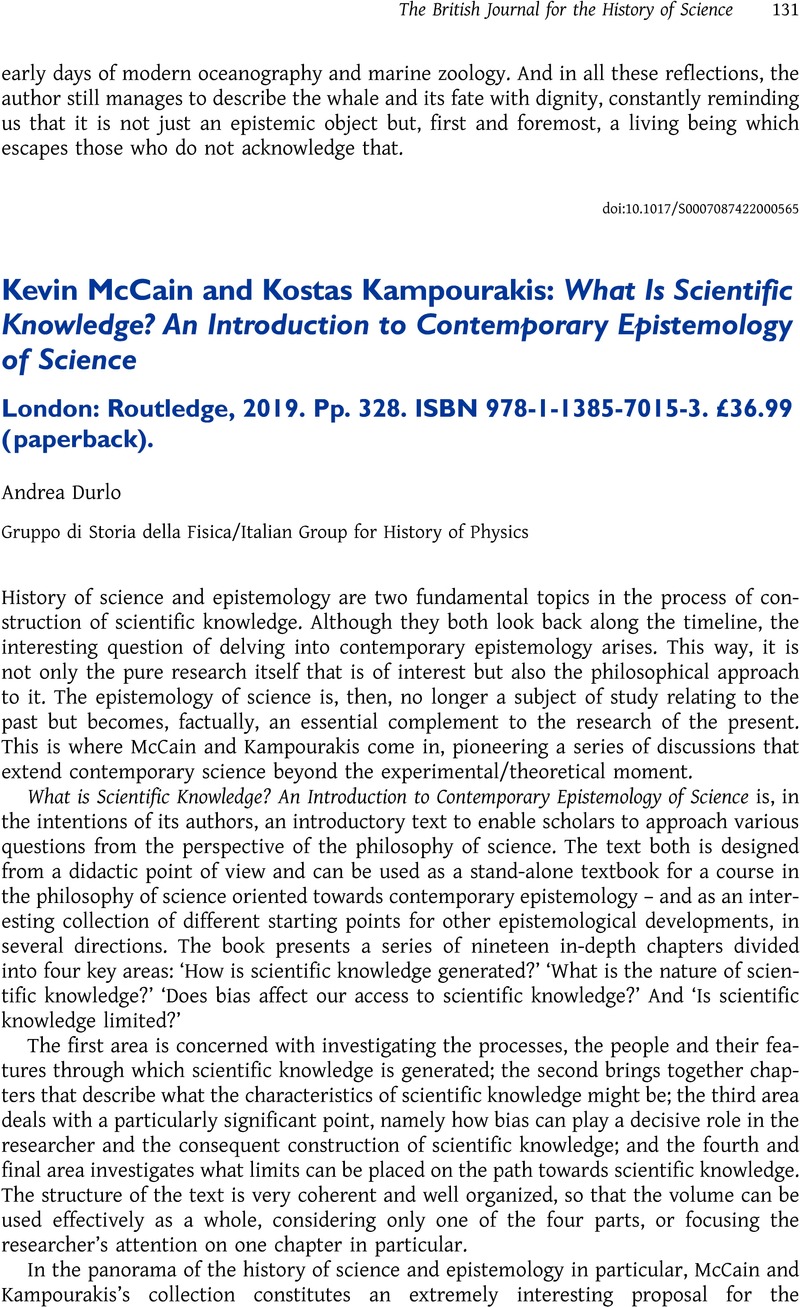No CrossRef data available.
Article contents
Kevin McCain and Kostas Kampourakis: What Is Scientific Knowledge? An Introduction to Contemporary Epistemology of Science London: Routledge, 2019. Pp. 328. ISBN 978-1-1385-7015-3. £36.99 (paperback).
Review products
Kevin McCain and Kostas Kampourakis: What Is Scientific Knowledge? An Introduction to Contemporary Epistemology of Science London: Routledge, 2019. Pp. 328. ISBN 978-1-1385-7015-3. £36.99 (paperback).
Published online by Cambridge University Press: 22 March 2023
Abstract
An abstract is not available for this content so a preview has been provided. Please use the Get access link above for information on how to access this content.

- Type
- Book Review
- Information
- Copyright
- Copyright © The Author(s), 2023. Published by Cambridge University Press on behalf of British Society for the History of Science



